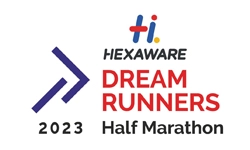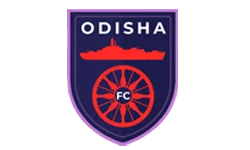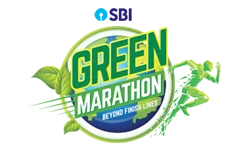People don’t like to count the drinks when they are partying. But drinking too much alcohol can make people dehydrate. Alcohol is diuretics meaning it causes frequent urination. This leads to loss of fluids and electrolytes from the body. Dehydration can lead to fatigue, dizziness, headaches, dry mouth, dark urine, decreased urine output, rapid heart rate, confusion, irritability, and in severe cases it can be life threatening.
To avoid alcohol related dehydration, we must understand the symptoms and causes of dehydration caused by alcohol.
When you drink alcohol both the liquid and alcohol travel through your stomach lining and small intestine into your bloodstream. If you drink alcohol on an empty stomach, it can be absorbed into your bloodstream within minutes. However, if you consume water or food alongside alcohol, the absorption process may take significantly longer.
Alcohol decreases the production of vasopressin, an antidiuretic hormone responsible for water retention in the body, thereby reducing urine production by the kidneys. This suppression of vasopressin worsens the diuretic effect of alcohol, contributing to dehydration (1).
Consuming excessive amounts of alcohol can decrease appetite, resulting in a reduced likelihood of eating while drinking. As a result, alcohol absorption can accelerate, leading to dehydration.
Kidneys help to filter out alcohol and remove toxins from the body. This also makes kidneys flush out water in the process. Since water is flushed out much faster than alcohol is processed. Consuming too much alcohol causes dehydration.
• Thirst: Alcohol can cause dehydration by increasing urination, leading to a feeling of thirst.
• Dry mouth: A common symptom of dehydration in general but exacerbated by alcohol's drying effect.
• Fatigue: Dehydration can lead to feelings of tiredness and lethargy.
• Headache: Dehydration can cause headaches, and alcohol can worsen this effect.
• Dizziness or lightheadedness: Dehydration can cause a drop in blood pressure, leading to feelings of dizziness or lightheadedness.
• Dark urine: Dehydration can concentrate urine, making it darker in color.
• Reduced urine output: Despite the diuretic effect of alcohol, severe dehydration can reduce urine output as the body tries to conserve water.
• Rapid heartbeat: Dehydration can lead to an increase in heart rate as the body tries to compensate for decreased fluid volume.
It's important to understand that the severity of these symptoms can vary depending on factors such as the amount of alcohol you consumed, individual tolerance, and your hydration status prior to drinking. If you suspect alcohol-related dehydration, it's essential to drink water or electrolyte-replenishing fluids to rehydrate and seek medical attention if symptoms are severe or persistent.
Once you have woken up to a hangover, you will find yourself desperately looking through remedies to cure your hangovers quickly While there might be no magic potion that can make it disappear, there are several remedies that can provide you comfort as the toxins exit your body.
Some of the common remedies are taking an over-the-counter painkiller before turning in for the night after drinking, however, alcohol combined with certain painkillers such as aspirin or ibuprofen can increase acid reflux and irritate the stomach lining.
The best way to reduce a hangover is through rehydrating your body with electrolytes. Several research suggest electrolytes such as potassium, sodium, and magnesium can be an essential source for hydration and restoration of proper bodily fluids.
Electrolytes are minerals that can be described as electric chargers that help our cells communicate with each other. Electrolytes play a vital role in muscle contraction, fluid balance and nerve function.
Research showed that several patients admitted to hospitals who develop electrolyte imbalance due to alcohol consumption show a decreased level of phosphate, potassium, magnesium, sodium, and calcium electrolyte abnormalities develop because of chronic alcohol consumption and are particularly seen during alcohol withdrawal. (2) Hence it is essential that we replenish these electrolytes after a night of drinking to prevent or reduce the symptoms of a hangover.
Electrolytes act as little messengers that carry electrical impulses throughout our body, making sure that it runs smoothly. They are involved in processes such as regulating muscle contractions, heartbeat and balance fluids in our cells.
Some of the electrolytes that can be found in our system are known as sodium, potassium, magnesium, chloride, and calcium.
Potassium stimulates vasopressin production, which is also known as the antidiuretic hormone, during a bout of hangover, you tend to lose fluids due to the diuretic properties of alcohol.
Potassium regulates the fluid balance and muscle function to ensure rehydration from all the fluid loss.
Magnesium deficiency is common among regular drinkers. This deficiency could lead to an increased risk of cardiovascular diseases, and gastrointestinal losses due to diarrheic and vomiting. (3)
Magnesium also plays a vital role in several body processes such as:
â— Nerve and muscle function
â— Blood sugar level
â— Blood pressure check
â— Protein synthesis
â— Bone health
â— DNA creation
Magnesium electrolytes help in cellular function, nerve conduction, brain and heart which are often affected during a hangover.
Sodium electrolytes are responsible for maintaining proper fluid balance, regulating blood pressure, supporting nerve and muscle function and aiding in the transportation of nutrients.
Consuming sodium electrolytes in a hangover helps replenish the sodium level that you have lost due to dehydration.
Calcium electrolytes help with muscle contraction, blood clotting, nerve function, and bone and teeth health.
Drinking can deplete calcium levels in your body causing muscle cramps and body aches. Calcium isn’t just for your bones, so make sure you replenish it too.
Chloride works alongside sodium to maintain fluid balance along with digestion. Drinking can lead to irritation in the digestive system which is why it is essential to maintain your chloride levels to avoid stomach aches and diarrheic.
Drinking alcohol can result in dehydration and impact multiple functions in the body. Recognizing the signs of alcohol-related dehydration and knowing how to prevent it is crucial for people.
Alcohol induced dehydration occurs when alcohol is consumed on an empty stomach or without consuming water or food. Those already prone to dehydration should consider avoiding or moderating their alcohol consumption.
Hydration is the key to ensuring your good time carries over to the next day as well. Drinking in moderation is advised, overconsumption can lead to serious health issues and in case of persistent hangover symptoms contact your health care provider.
FAQ
1. Does alcohol dehydrate you?
Yes, alcohol is a diuretic, increasing urine production and leading to dehydration if not enough fluids are consumed to offset its effects.
2. How does alcohol affect the body?
Alcohol affects the body in various ways, including impairing cognitive function, altering mood and behavior, increasing urine production (leading to dehydration), impacting liver function, and potentially causing long-term health issues such as addiction and organ damage.
3. Do electrolytes help after drinking alcohol?
Absolutely! Electrolytes can be extremely beneficial after drinking alcohol.
Due to its diuretic properties, alcohol can lead to dehydration and cause symptoms such as fatigue, headache, and muscle cramps.
Replenishing electrolytes, such as sodium, potassium, and magnesium, can help restore hydration and support normal bodily functions.
4. Do electrolytes hydrate you after drinking alcohol?
Yes, electrolytes can help hydrate you after drinking alcohol.
Consuming alcohol causes you to water through sweating, urination and excretion. You need electrolytes like sodium, potassium, and magnesium to replenish the fluids lost during dehydration.














